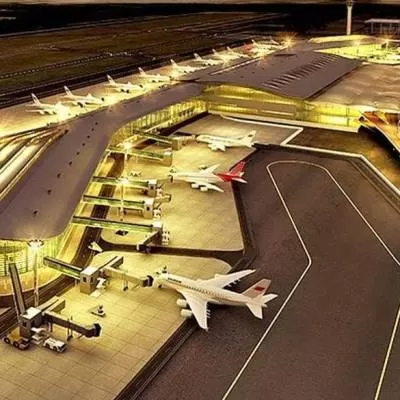Schedule a Call Back
Hong Kong Halts Land Sales
 In a significant move, Hong Kong's government has decided not to sell any commercial land in the second quarter of the fiscal year 2024 due to the high vacancy rates in the city's commercial real estate market. This decision highlights the ongoing challenges faced by the commercial property sector, which has been struggling with an oversupply and subdued demand amid economic uncertainties.
In a significant move, Hong Kong's government has decided not to sell any commercial land in the second quarter of the fiscal year 2024 due to the high vacancy rates in the city's commercial real estate market. This decision highlights the ongoing challenges faced by the commercial property sector, which has been struggling with an oversupply and subdued demand amid economic uncertainties.
The high vacancy rates in commercial properties have prompted the government to reassess its land sales strategy. With many office spaces and retail units remaining unoccupied, the administration aims to stabilize the market by limiting the influx of new commercial spaces. This approach is intended to allow the existing inventory to be absorbed before introducing additional supply, thereby preventing further downward pressure on rental and property prices.
Several factors contribute to the high vacancy rates in Hong Kong's commercial real estate market. The economic impact of the COVID-19 pandemic has significantly affected businesses, leading to closures and downsizing. Furthermore, the shift towards remote work has reduced the demand for office spaces, as companies adapt to more flexible working arrangements. The retail sector has also faced challenges, with reduced foot traffic and changes in consumer behavior affecting occupancy rates in shopping centers and commercial complexes.
By halting the sale of commercial land, the Hong Kong government aims to create a more balanced and sustainable real estate market. This measure is expected to provide relief to landlords and property owners who have been grappling with high vacancy rates and declining rental incomes. Additionally, it signals the government's proactive approach to managing the city's real estate sector amidst ongoing economic challenges.
The decision to pause commercial land sales is also part of broader efforts to support Hong Kong's economic recovery. By stabilizing the commercial property market, the government hopes to create a more favorable environment for businesses to recover and thrive. This, in turn, could help boost investor confidence and attract more enterprises to the city, ultimately contributing to economic growth.
In summary, Hong Kong's decision not to sell commercial land in the second quarter of FY24 due to high vacancy rates reflects a strategic move to stabilize the commercial real estate market. By addressing the oversupply issue and supporting existing property owners, the government aims to create a more balanced market and foster economic recovery.


Subscribe Now
Subscribe to our Newsletter & Stay updated
RECENT POSTS
Popular Tags
Folliow us
Related Stories
DPIIT Partners With YourStory To Boost Inclusive Startups
In a significant step to boost grassroots entrepreneurship, the Department for Promotion of Industry and Internal Trade (DPIIT) has signed a Memo...
Dassault To Build Falcon Jets In India With Reliance
Reliance Infrastructure Ltd’s subsidiary, Reliance Aerostructure, has signed an agreement with France’s Dassault Aviation to manufacture Falc...
Karnataka Launches Global Innovation Hub at Airport City
The Government of Karnataka, in collaboration with Bengaluru Airport City Limited (BACL) and ANSR, has launched a global innovation hub named Dis...









